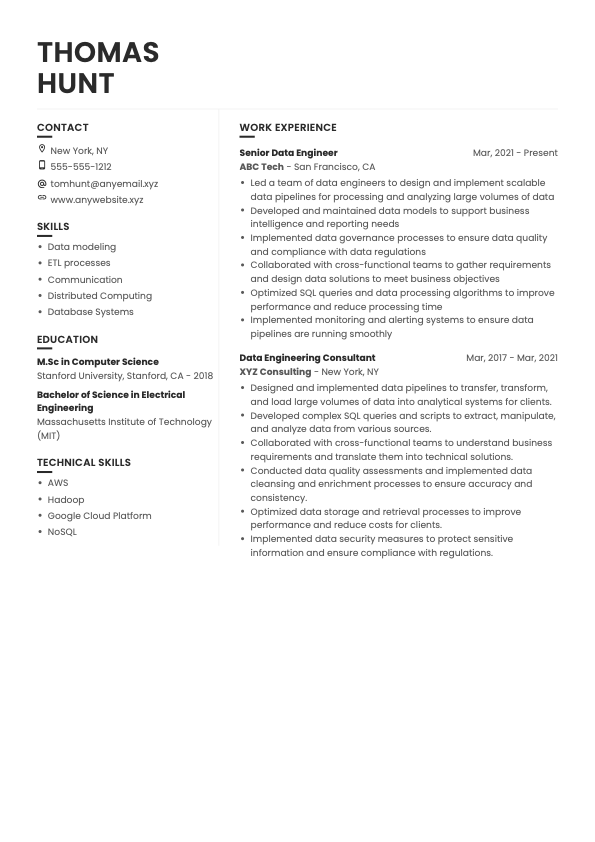
Data engineering is predicted to be one of the most sought after skillsets in the next decade. Here’s a breakdown of what to include in your resume and how to showcase your skills and achievements that will set you apart in the eyes of potential employers as a Data Engineer.

"Detail-oriented Data Engineer with over 5 years of experience specializing in data architecture, ETL workflows, and database optimization. Skilled in transforming business needs into data-driven solutions to promote growth and operational efficiency. Proven track record of delivering robust data infrastructures leading to substantial improvements in data accessibility and process efficiency."
Tips for Writing a Strong Resume Summary
Keep it brief: Aim for 3-4 sentences, ideally between 50 – 100 words.
Focus on your most relevant experiences and achievements.
Incorporate keywords from the job description to align with the employer’s expectations.
- Designed a data pipeline that boosted data processing speed by 20%, leading to quicker decision-making.
- Harnessed ETL tools to streamline database management, reducing data redundancy by 30%.
- Led a data warehousing project that improved data accessibility, augmenting team productivity by 40%.
Best Practices for Experience Section
Use reverse chronological order, starting with your most recent role.
Include company names, job titles, and dates of employment.
Emphasize accomplishments that align with the job responsibilities.
Technical Skills
Soft Skills
Tips for Skills Section
Use bullet points for clarity and readability.
Tailor your skills to match the job description.
Prioritize the most relevant skills for this role
Tips for Including Courses and Certifications
Creating a professional resume doesn’t have to be daunting. With the right guidance and tools, you can craft a resume that captures your strengths and impresses hiring managers. Use the Careerpilot resume builder and explore our suggested resume templates to get started. With our intuitive platform, you’ll have a polished and customized resume in no time. Start building your resume today and take the first step toward your next career opportunity!
We use cookies to enhance your experience. By continuing to visit this site, you agree to our use of cookies. Not consenting or withdrawing consent, may adversely affect certain features and functions.